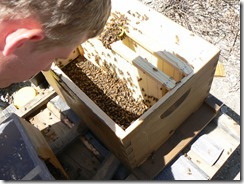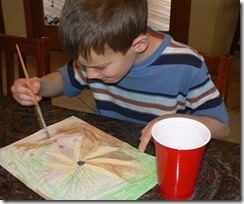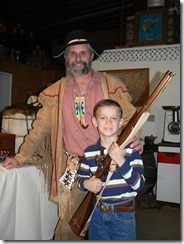What is the Goal in Our Children’s Education?
 Mom’s do you have a vision for your children’s education?
Mom’s do you have a vision for your children’s education?
Whether we are able to articulate it or not we are all operating from some premise of thought of what we think education for our children should look like.
The decisions we make about their schooling move us along in that vision.
As you may know, I love the writings of Charlotte Mason, an 18th century educator who had an incredible understanding and appreciation of children. Many of her thoughts you will find mingled with my writing but I would encourage you to read her books for yourself.
The scope of the various types of education people can give their child is too large for me to write about here in this post. There are many thoughts and ideas out there. The main category that most people fall into is that of Traditional Education.
 What does a Traditional Education look like? A Traditional Education typically involves school desks, textbooks, and graded tests. There is usually no varying off-course since the books must be finished by a certain time. If the family goes on vacation, there’s the catching up one has to do, if the child has an interest besides what’s presented to them, there’s not much room for changing directions. The books have to be done! It is as if all decisions become not ours but the choice of the curriculum publisher.
What does a Traditional Education look like? A Traditional Education typically involves school desks, textbooks, and graded tests. There is usually no varying off-course since the books must be finished by a certain time. If the family goes on vacation, there’s the catching up one has to do, if the child has an interest besides what’s presented to them, there’s not much room for changing directions. The books have to be done! It is as if all decisions become not ours but the choice of the curriculum publisher.
“If we send to any publisher for his catalogue of school books, we find that it is accepted as the nature of a school-book that it be drained dry of living though. It may bear the name of a thinker, but then it is the abridgment of an abridgment, and all that is left for the unhappy scholar is the dry bones of his subject denuded of soft flesh and living color, of the stir of life and power of moving. Nothing is left but what Oliver Wendell Holmes call the ‘mere brute fact.’” CM
What Kinds of Books Do You Read?
Let me ask you. When you choose to read a book is one of your first choices a children’s or adult textbook? Are they what you search out when you go to garage sales, library sales or wherever else you might find them?
I would guess “No” for 100% of you. What you do choose to read are books that excite you, that stir the imagination, that engage you. Now the type of book you read in this area may be considered twaddle but that discussion is not for now. ![]() The point is you probably do not pick up a textbook to read either for learning or pleasure.
The point is you probably do not pick up a textbook to read either for learning or pleasure.
Why then do we think this is the best way for our children to learn?
What is your goal in your children’s education? What vision do you have for what they should be like when they have finished their 12 years of schooling? Why do we educate our children anyways?
“It cannot be too often said that information is not education. You may answer an examination question about the position of the Seychelles and the Comoro Islands without having been anywise nourished by the fact of these island groups existing in such and such latitudes and longitudes; but if you follow Bullen in The Cruise of the Cachelot the names excite that little mental stir which indicates the reception of real knowledge.” CM
I know none of us probably would desire to have our children read their history, their science book, et cetera and then forget it just as quickly. We want them to be engaged or to engage with what they’re reading.
“Education is the Science of Relations…” “…we must train him upon physical exercise, nature handicrafts, science and art, and upon many living books; for we know that our business is, not to teach him all about anything, but to help make valid, as many as may be of ‘Those first born affinities, that fit our new existence to existing things.’” CM
 In other words we cannot and do not need to teach our children everything there is to know about everything, but we want to inspire them and help them to be interested in the world around them.
In other words we cannot and do not need to teach our children everything there is to know about everything, but we want to inspire them and help them to be interested in the world around them.
“The question is not, –how much does the youth know? when he has finished his education—but how much does he care? and about how many orders of things does he care?” CM
If we know that the dry textbooks of today and the system of learning that is in place in most schools do not work to engage the children in their learning, why do we not stop and consider change?
If something’s broke why do we keep using it?

8 Comments
JS
Excellent! I decry thousands of wasted hours in a public school poring over tedious and boring textbooks that neither instilled a love of learning, a curiosity about life, nor the caring mentioned in CM’s writings!
BILL
I remember,that my sisters came home,after school,and ate supper,and did up the dishes,and then they would sit at the dining room table,and do their home work,for an hour,or so.Me.I looked at it different.The way I saw home work,was to do it in study hall.To me school was like a job.After 8 hours I punch the clock,and the rest of the day was mine.
Anna
SO TRUE! I totally agree.
Mom has been doing this with me and it’s SO much better than the rigid “stick with the book” way we did it when we first started out. Homeschool Moms are awesome.
Syaiful Imran
That,s true. Parent take more responsibility for their kids education.
Parents need to guide actively until their children become mature.
sarah
education is key in our day today lives. children should be all rounded in terms of life skills and also knowledge
Mariam Maina
Unfortunately, education is treated as a basic need. We teach our children…go to school and get employment! This should not be the case!
Beth Bishop
For seven hours a day, 180 days a year, and for 13 years we build into the lives of our precious children in public education. Multiplied out, this results in well over 16,000 hours of schooling. Such an enormous investment is certainly worth evaluation. As the father of eight, the education and training of my kids is of great importance. I’m also a certified teacher and taught eighth grade science for a year at an academically recognized public middle school. Let me cut to the chase. I don’t think public schools are the best option for most Christian parents. A public education does not adequately equip the vast majority of kids in key areas of Christian development, and it does not leave enough time for the average parent to do so.
Elisabeth
Well said. Parenting requires time and commitment. And what a privilege to be able to have our children home and in a good atmosphere, teaching them not only things that will help them in life but also in their Christian walk.